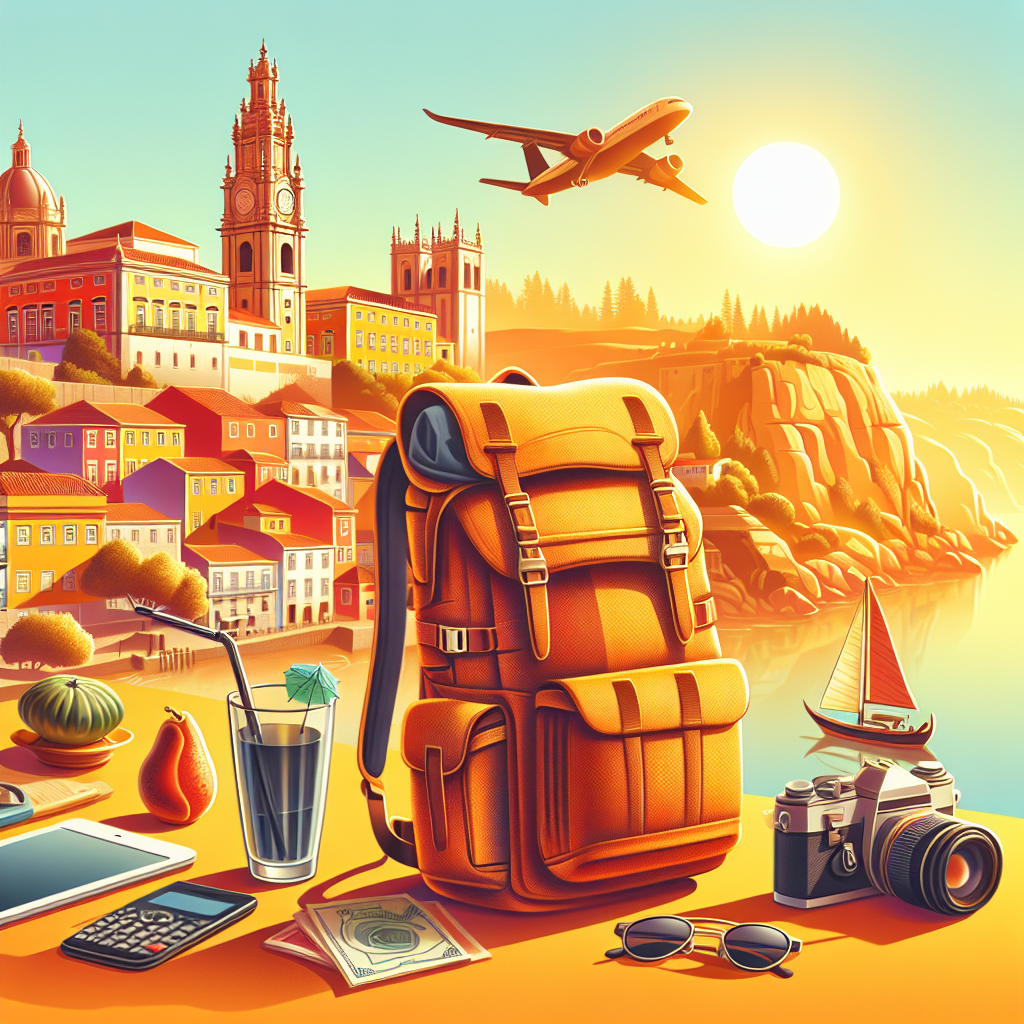The Ultimate Guide to Backpacking Portugal on a Budget: Tips & Tricks
Portugal, a country renowned for its rich history, breathtaking landscapes, and delicious cuisine, has become a haven for backpackers seeking adventure without breaking the bank. From the cobblestone streets of Lisbon to the stunning beaches of the Algarve, Portugal offers something for every type of traveler. This guide will share essential tips and tricks for backpacking Portugal on a budget, ensuring you make the most of your journey. Additionally, we’ll include a FAQ section at the end to help you recreate the experience or answer any lingering questions.
Budgeting and Planning
1. When to Visit
Timing is everything when trying to save money. The best time to visit Portugal is during the shoulder seasons, from March to May or September to October. During these months, you’ll find fewer tourists, cheaper accommodation, and mild weather.
2. Budgeting
On average, budget travelers can get by in Portugal for €45-€70 per day, covering accommodation, meals, public transport, and attractions. Your biggest expenses will likely be accommodation and inter-city travel, so planning these aspects carefully can save you a lot.
Accommodation
1. Hostels and Guesthouses
Staying in hostels is a great way to save money. Many hostels in Portugal offer free breakfast, which can help reduce your food expenses. Additionally, guesthouses or “pensões” offer affordable rates for private rooms.
2. Alternative Accommodations
Consider Couchsurfing or using platforms like Airbnb for shared rooms. Also, camping is a budget-friendly option during warmer months, especially along the coast or in national parks.
Transportation
1. Public Transit
In cities, public transportation is your best bet. Invest in multi-day passes for buses, trams, and metros to save on individual fares.
2. Trains and Buses
For inter-city travel, buses are usually cheaper than trains. However, booking train tickets in advance can score you significant discounts.
3. Ridesharing and Hitchhiking
Platforms like BlaBlaCar are popular in Portugal for inter-city travel. Hitchhiking is also an option, especially in rural areas, but always exercise caution.
Food and Drink
1. Cook Your Meals
Most hostels have kitchens where you can cook your meals. Supermarkets like Pingo Doce and Continente offer affordable groceries. Local markets are also a great place to buy fresh produce.
2. Eat Like a Local
For dining out, opt for “prato do dia” (dish of the day) at local “tascas” (taverns) for a hearty meal at a fraction of the cost. Also, Portugal’s pastelarias (pastry shops) offer delicious and cheap options for breakfast or snacks.
3. Drink Local
Portugal is famous for its wines and port. Drinking local wines is not only a cultural experience but also a budget-friendly choice. Avoid touristy bars and instead, sip your drink at neighborhood joints.
Attractions and Activities
1. Free Walking Tours
Many cities in Portugal offer free walking tours – a great way to learn about the city from a local perspective. Just remember to tip your guide!
2. Museums and Historical Sites
Look out for days when museums and historical sites offer free entry. For example, many museums in Lisbon are free on the first Sunday of every month.
3. Nature and Beaches
One of Portugal’s greatest attractions is its natural beauty, which is completely free to enjoy. Hiking trails in national parks and lounging on the country’s beautiful beaches cost nothing.
Tips for Saving Money
– Buy a SIM card with a data plan for navigation and to avoid costly international roaming charges.
– Carry a water bottle as tap water in Portugal is safe to drink. This will save you money and reduce plastic usage.
– Walk or bike when exploring cities. Many places are accessible on foot, and biking is a fun and cheap way to see the sights.
FAQ Section
Q: What are the must-visit places in Portugal for a backpacker?
A: Don’t miss Lisbon for its vibrant culture, Porto for its stunning architecture, the Algarve for its beaches, Sintra for its fairy-tale castles, and the Douro Valley for its wine.
Q: Is Portugal safe for solo backpackers?
A: Yes, Portugal is considered one of the safest European countries for travelers. However, always exercise common sense, especially in tourist areas where pickpocketing can occur.
Q: Can I work in Portugal to fund my travels?
A: Non-EU citizens will need a work visa to legally work in Portugal. However, there are opportunities for volunteer work in exchange for accommodation and food that do not require a work visa.
Q: How can I stay connected affordably in Portugal?
A: Purchasing a local SIM card is the most cost-effective way to stay connected. Major providers like Vodafone, MEO, and NOS offer plans tailored for tourists.
Q: What’s the best way to meet other travelers or locals?
A: Staying in hostels, joining free walking tours, or attending local meetups or language exchange events are excellent ways to meet people.
—
By following these tips and tricks, backpacking Portugal on a budget is not only feasible but can also be an incredibly rewarding experience. You’ll have the opportunity to immerse yourself in the rich Portuguese culture, savour delicious foods, and explore stunning landscapes—all without draining your bank account. Boa viagem!
